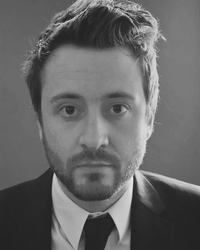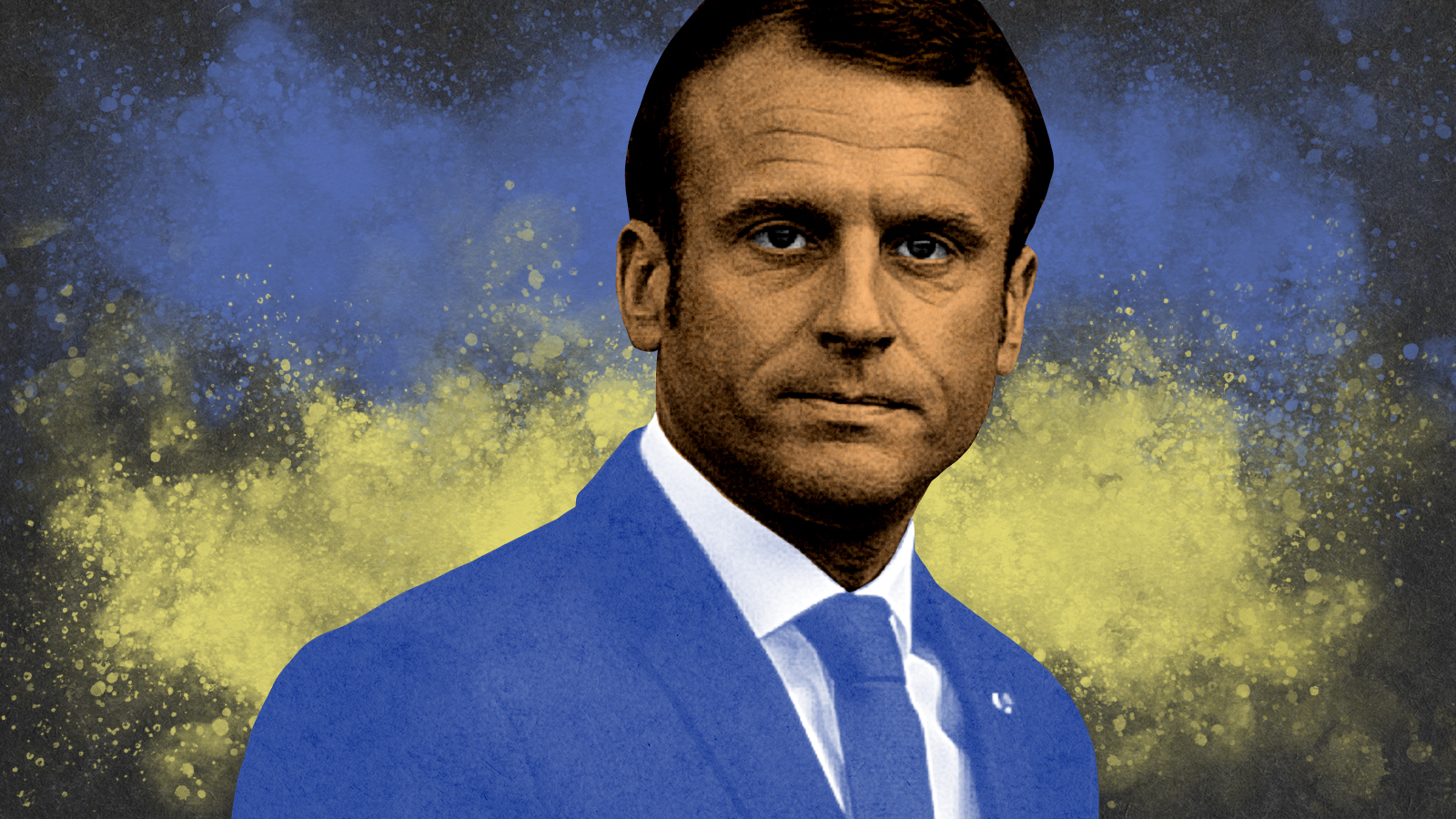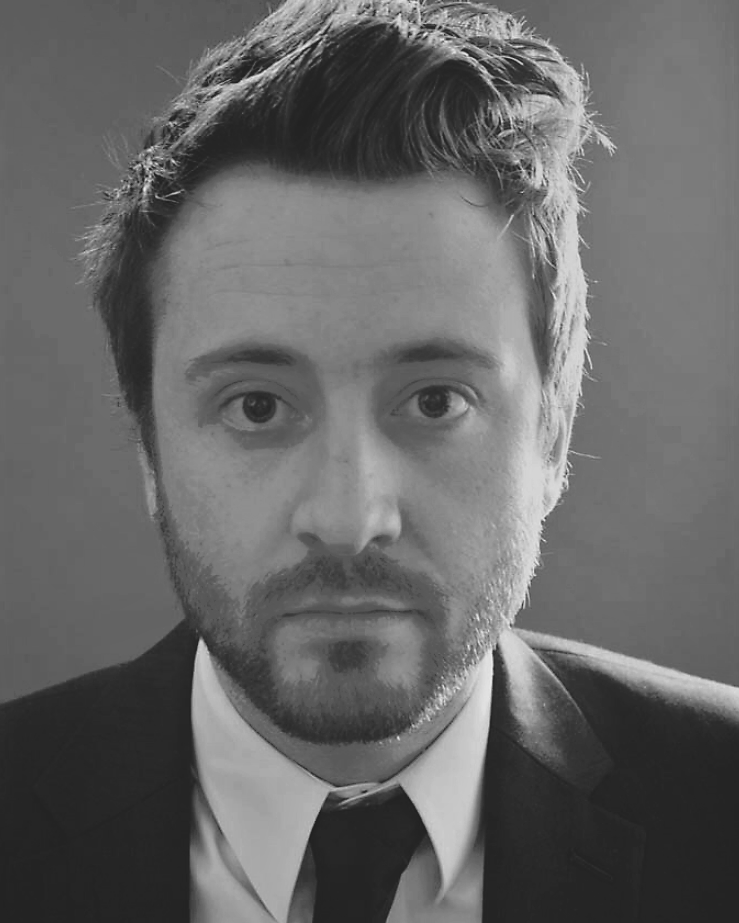France's President Macron must lead the way to peace in Ukraine
France's leader is uniquely positioned — and qualified — to influence NATO and Putin


A free daily email with the biggest news stories of the day – and the best features from TheWeek.com
You are now subscribed
Your newsletter sign-up was successful
Russian President Vladimir Putin's invasion of Ukraine has widened the divide between Russia and the West and threatened the security of Europe. With talks between Moscow and Kyiv so far failing to produce a negotiated settlement, and President Biden favoring unhelpful escalatory rhetoric, it is hard to imagine what the endgame of the Russia-Ukraine conflict will look like. Historian Niall Ferguson has even suggested that Washington is trying to prolong the conflict to bleed Moscow of blood and treasure. Some have hoped that Israel or China might facilitate an agreement to end the war, but neither can guarantee that a resolution to the conflict would protect Russia's long-term interests.
The man best placed to resolve the crisis? French President Emmanuel Macron.
Before the war, Macron took the lead in engaging Putin diplomatically. The French president should be applauded for trying to prevent war, but he never stood a chance. Macron was working within the suffocating constraints of an intensifying security competition between the United States and Russia. Putin had made it clear that avoiding war would require written guarantees from Washington that Ukraine will never join NATO. During a televised meeting with his national security team, Putin observed that in 2008 reluctant European governments had opened NATO's door to Kyiv under U.S. pressure. He reasoned that Washington could compel those same nations to one day vote for Ukraine's accession to the alliance. There was little Macron could do to assuage those concerns.
The Week
Escape your echo chamber. Get the facts behind the news, plus analysis from multiple perspectives.

Sign up for The Week's Free Newsletters
From our morning news briefing to a weekly Good News Newsletter, get the best of The Week delivered directly to your inbox.
From our morning news briefing to a weekly Good News Newsletter, get the best of The Week delivered directly to your inbox.
Now that war is underway, and with no off-ramp in sight, the world needs bolder action from the French head of state. Following Biden's assertion that Putin is a "butcher" who "cannot remain in power," Macron was right to emphasize that Western leaders should avoid hostile rhetoric that intensifies the conflict, but his deference to Washington has so far prevented him from taking the action needed to resolve the crisis. Macron should now announce, after doing the necessary diplomacy behind the scenes, that if Putin withdraws military forces from Ukraine, Paris will block Kyiv's bid to join NATO. To make this assurance credible, Macron should explicitly and publicly, though graciously, reject U.S. leadership in Europe. That would be an uncomfortable step, but Europeans in general — and Ukrainians in particular — will be better off if he takes it.
In recent decades, America has badly undermined Europe's security. U.S. belligerence in the Middle East has unleashed refugee crises that continue to destabilize European politics. And as John Mearsheimer predicted, America's insistence on backing Putin into a corner has now created another crisis on the continent. This time, not Syrian migrants but Russian tanks headed toward a European capital.
Theoretically, any NATO state could promise to deny membership to Ukraine, thus relieving Russia's security concerns and opening a path to peace. But Putin knows any such assurance from, say, Slovakia, might not survive a change of government in Bratislava, especially amid a diplomatic campaign from Washington. As it happens, Macron is uniquely well-positioned to convince Moscow that his country will keep NATO's door shut to Kyiv.
On both left and right, Macron's opponents in the upcoming presidential elections are sympathetic to the Kremlin's perspective on the conflict. Moscow would understand that if Macron loses this month, his successor likely won't renege on his promise. While the gambit is not guaranteed to succeed, Putin would need to withdraw military forces for the agreement to take effect, and then avoid further aggression to vindicate the policy as a cornerstone of European security. Whatever happens, Macron wouldn't have to worry about pro-Russia candidates Eric Zemmour and Jean-Luc Melenchon accusing him of being Putin's puppet.
A free daily email with the biggest news stories of the day – and the best features from TheWeek.com
With the United Kingdom out of the European Union, and Angela Merkel off the international stage, Macron is the face of Europe. That France currently holds the EU presidency only adds to his mystique. Macron should use his newfound eminence to persuade the rest of Europe that keeping Ukraine out of NATO is humane and pragmatic policy. Even Zelensky has cooled on the idea of joining NATO, though he cannot ensure that future Ukrainian presidents will feel the same. The pre-invasion NATO approach of publicly asserting that Ukraine could join the alliance, while privately telling Ukraine they won't be admitted, was clearly flawed and should now be rectified.
Such a solution should not be dismissed as "appeasement." Ukrainians would benefit from their country becoming a buffer state rather than the pawn of great powers. Europeans would benefit from seizing control of their own destiny. And the world would benefit from the removal of an explosive geopolitical dispute between the two biggest nuclear powers in the world.
France may worry that a rebuke of Washington would backfire, but the consequences would be much less severe than many realize. A declining superpower, the U.S. found it difficult to convince even close allies like Israel to stand against Russia. At the U.N. Security Council, the world's most populous nations — China and India — abstained from condemning the Russian invasion, as did the United Arab Emirates, a U.S. ally. Other Middle Eastern partners — Saudi Arabia, Qatar, and Egypt — are pursuing their own strategic objectives rather than siding with America. Washington has had trouble getting Latin America on board with the sanctions regime, and members of Mexico's ruling party even formed a "Mexico-Russia Friendship Committee" to show sympathy for Moscow. None of these countries seem worried about how the U.S. will respond to their refusal to toe the line.
Moreover, after the fallout in U.S.-France relations over Australia's cancelation of its submarine contract with France last year, the Biden administration expressed support for Macron's efforts to increase Europe's defense capabilities — a change in U.S. posture that struck many observers as significant. And as Benjamin Friedman and Justin Logan persuasively argued, Russia's weakness-revealing invasion and Europe's powerful collective response show that the U.S. is no longer needed to guarantee European security.
Of course, the White House wouldn't appreciate a European vassal taking charge of NATO policy, but there's not much it could do in response. If the United States loses the good will of a united Europe, who will it have on its side? European leaders, for their part, seem ready to take the lead on their own continent. Macron has long supported the creation of a "true European army." After the chaotic U.S. withdrawal from Afghanistan, EU chief Ursula von der Leyden told the European Parliament that "it is time for Europe to step up to the next level." Following Russia's invasion of Ukraine, Berlin committed to a dramatic increase in defense spending, a reversal of its post-World War II aversion to militarism.
Macron has the leverage needed to defy Washington's push for further conflict escalation; he has the credibility to lead the Western response to Russia's aggression; and he has the vision to promote an expansive, pan-European identity that would be capable, at least after the present crisis, of solidarity with Russia. Such an identity would be a boon to European security in the coming age of civilizational geopolitics.
Since Putin's invasion, Europe has adopted the same Russophobic, Cold War mindset that has plagued the U.S. for at least a decade. But that shouldn't mean Europe gives up on its aspirations of strategic independence from America. Nor should it mean that Europeans foreclose the possibility of a Russian rapprochement. Following a conversation with Putin in Moscow before the invasion, Macron correctly asserted that "Russia is European. Whoever believes in Europe must know how to work with Russia and find the ways and the means to construct the European future among Europeans." Macron should act now to take European security into European hands.
Andrew Day is a Foreign Policy Researcher for the Nonzero Foundation. He has a PhD in political science from Northwestern University and currently lives in Prague.
-
 Tourangelle-style pork with prunes recipe
Tourangelle-style pork with prunes recipeThe Week Recommends This traditional, rustic dish is a French classic
-
 The Epstein files: glimpses of a deeply disturbing world
The Epstein files: glimpses of a deeply disturbing worldIn the Spotlight Trove of released documents paint a picture of depravity and privilege in which men hold the cards, and women are powerless or peripheral
-
 Jeff Bezos: cutting the legs off The Washington Post
Jeff Bezos: cutting the legs off The Washington PostIn the Spotlight A stalwart of American journalism is a shadow of itself after swingeing cuts by its billionaire owner
-
 What would a UK deployment to Ukraine look like?
What would a UK deployment to Ukraine look like?Today's Big Question Security agreement commits British and French forces in event of ceasefire
-
 Would Europe defend Greenland from US aggression?
Would Europe defend Greenland from US aggression?Today’s Big Question ‘Mildness’ of EU pushback against Trump provocation ‘illustrates the bind Europe finds itself in’
-
 Is conscription the answer to Europe’s security woes?
Is conscription the answer to Europe’s security woes?Today's Big Question How best to boost troop numbers to deal with Russian threat is ‘prompting fierce and soul-searching debates’
-
 Trump peace deal: an offer Zelenskyy can’t refuse?
Trump peace deal: an offer Zelenskyy can’t refuse?Today’s Big Question ‘Unpalatable’ US plan may strengthen embattled Ukrainian president at home
-
 The Baltic ‘bog belt’ plan to protect Europe from Russia
The Baltic ‘bog belt’ plan to protect Europe from RussiaUnder the Radar Reviving lost wetland on Nato’s eastern flank would fuse ‘two European priorities that increasingly compete for attention and funding: defence and climate’
-
 How should Nato respond to Putin’s incursions?
How should Nato respond to Putin’s incursions?Today’s big question Russia has breached Nato airspace regularly this month, and nations are primed to respond
-
 What will bring Vladimir Putin to the negotiating table?
What will bring Vladimir Putin to the negotiating table?Today’s Big Question With diplomatic efforts stalling, the US and EU turn again to sanctions as Russian drone strikes on Poland risk dramatically escalating conflict
-
 The mission to demine Ukraine
The mission to demine UkraineThe Explainer An estimated quarter of the nation – an area the size of England – is contaminated with landmines and unexploded shells from the war
